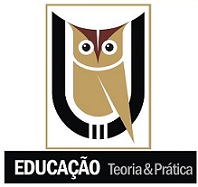Popular education and social pedagogy: is there a possible case in Porto Alegre?
DOI:
https://doi.org/10.18675/1981-8106.vol23.n43.p128-144Keywords:
Popular Education. Social Education. Popular Movement. Social Pedagogy.Abstract
This article aims to present some reflections on popular education and social pedagogy, and in the midst of these, be problematized the case of Porto Alegre, presenting the engagement of educators (as) popular, organized (as) in the Association of Popular Educators from Porto Alegre - AEPPA, in order to fight for education.. The method is based on theoretical studies and direct insertion in the context of popular education, with summaries and group discussions. As a result, it is emphasized that there are similarities, but also disagreements between the two terminologies, and adds to them, still others, such. Popular education emerges very strongly linked to popular social movements and carries the commitment to social transformation. The social pedagogy, in turn, is born in the post - World War II in a vulnerable position, proposing assistance and alleviation of suffering. In this aspect there is dialogue possible, however, popular education has a markedly class, with the option (s) impoverished (as), which according to Freire, they learn to read the world. The mismatch occurs when the terms are confused - popular education and social pedagogy - as if they were the same, or if one could replace the other. Finally, in conclusion, points out that education does not exclude the popular social pedagogy and vice versa, and the two have meaning in the educational doings.Downloads
Published
How to Cite
Issue
Section
License
Authors who publish in this journal agree to the following terms:
a) Authors assign copyright to the journal, with the work simultaneously licensed under the Creative Commons Attribution License that allows sharing of the work with acknowledgment of authorship and publication in this journal.
b) The policy adopted by the Editorial Committee is to assign copyright only after a period of 30 months from the date of publication of the article. After this time, authors interested in publishing the same text in another work must send a letter to the Editorial Committee requesting the release of the assignment of copyright and wait for a response.
c) This journal provides public access to all its content, since this allows greater visibility and reach of published articles and reviews. For more information on this approach, visit the Public Knowledge Project, a project that developed this system to improve the academic and public quality of research, by distributing OJS as well as other software to support the public access publication system to academic sources. The names and email addresses on this website will be used exclusively for the purposes of the journal and will not be available for other purposes. This journal provides open any other party  This work is licensed under a Creative Commons License
This work is licensed under a Creative Commons License











